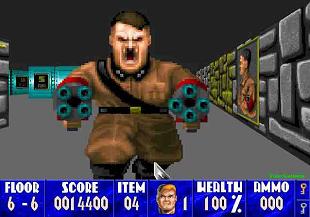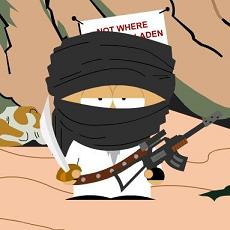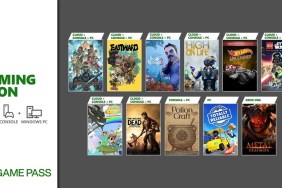It is a serious risk to replicate real-world cultures, persons, and beliefs in video games. Video games are typically viewed as a tool of escapism and relaxation, and for many people, the last thing that they want to experience would be real-life complexities in their free time. Unfortunately, the addition of real, painful, and harsh realities find their way into games. From something simple like the Michael Jackson-esque zombie in Plants vs. Zombies to religious imagery in many early RPGs in the mid-nineties, there is occasionally some controversial element in a game that must be addressed. Sometimes they are removed voluntarily by the company, censored by a government, or occasionally find themselves on market shelves where mainstream news outlets exclaim their outrage.
It's risky business indeed to make a game with real-world people and places, especially when they replicate real-world events and conflicts. Some instead rely on cliché mainstay enemies. Modern Warfare 2, for example, falls back on the easy trope of Russian terrorists and military troops. While this brought its own share of minor controversies, avoiding true contemporary enemies – such as nationalized Middle Eastern troops and soldiers – meant they were able to launch this game without offending traditional American sensibilities, as well as keeping the international markets open.
Remember, it was not long ago that Konami backed out of publishing Six Days in Fallujah. When it was first shown off a little over a year ago, Six Days in Fallujah was touted as one of the most realistic shooters ever made. Atomic Games was so dedicated to the game that they had incorporated the real experiences of soldiers from the 3rd Battalion 1st Marines. With positive initial impressions, sensibilities indicated that Atomic Games would handle recreating the Second Battle of Fallujah with delicacy. Unfortunately, early concerns over offending markets caused Konami to cancel their partnership with Atomic Games, sending the title into vaperware, while the developer moved on to other projects. In the end, a realistic recreation of real-world events caused major problems for the title.
So it is important to pay attention how EA's latest release, the reboot of Medal of Honor, placed the company at the source of one such recent controversy. Emulating real modern conflicts, EA DICE's title even included the Taliban as the opposing enemies in their multiplayer mode. In a post 9/11 world, this can mean serious implications. After some outcry, the company decided to remove the Taliban from the game, calling the enemy characters “Opposing Forces”. To quote Executive Producer Greg Goodrich about the change: “We are making this change for the men and women serving in the military and for the families of those who have paid the ultimate sacrifice – this franchise will never willfully disrespect, intentionally or otherwise, your memory and service."
EA's decision to drop the Taliban comes after negative publicity hit the company, when of note the American military refused to stock the game in military base GameStops. This response is quite different from the company's stance earlier this year. In Develop Online, EA Games President Frank Gibeau lamented in August that games have to fight against a double standard: “At EA we passionately believe games are an artform, and I don't know why films and books set in Afghanistan don't get flack, yet [games] do.”
 Yet the company caved in. Liam Fox, the UK's Defense Secretary, decried the title for the addition of the Taliban, expressing in the Sunday Times that retailers should not support the title because it allowed players to play as the terrorist organization. Even more, the US military, which had previously supported the development of the game with the single-player campaign was apparently unaware of the Taliban inclusion in the multiplayer. Considering that this would be sold to active soldiers, the military has still declined the sale of the title, even with the removal of the Taliban name.
Yet the company caved in. Liam Fox, the UK's Defense Secretary, decried the title for the addition of the Taliban, expressing in the Sunday Times that retailers should not support the title because it allowed players to play as the terrorist organization. Even more, the US military, which had previously supported the development of the game with the single-player campaign was apparently unaware of the Taliban inclusion in the multiplayer. Considering that this would be sold to active soldiers, the military has still declined the sale of the title, even with the removal of the Taliban name.
In addition to American and English government and political protestations against the inclusion of the Taliban in Medal of Honor, the Canadian and Danish military groups found this inclusion to be distasteful. Ultimately, EA's decision made it clear that these complaints were being heard, and actions were made.
Some media groups have made a response about the inclusion in the game. Hamza Aziz from Destructoid made a strong case against the inclusion of the Taliban in Medal of Honor. An Afghan-American, Aziz described the atrocities of the Taliban that directly impacted his family. While there are still living members of society who directly experienced the horrors of WWII, the Korean War, and Vietnam, the issues of Al-Qaeda and the actions of the Taliban are still making direct impact on the cultural and political landscape of American and Western Europe.
This puts forth the question on whether or not video games can incorporate real-world, contemporary conflicts as a mode of entertainment – or interactive involvement. While many politicians have made the argument that video games are different, that the tactile action of the player instills negative reactions especially in children, there are some major problems with these arguments. For one, most, if not all military shooters are 'M'-rated, meaning anyone under the age of 17 really should not be playing the games in question. Children, for all intents and purposes, should not be playing Medal of Honor, Modern Warfare 2, or games of this nature.
There is also the question of whether or not the addition of these military elements in games could actually be educational or beneficial for gamers. Many would agree that the multitude of World War II and Vietnam-era shooters and strategy games have educated plenty a consumer who might normally not know anything about these conflicts. Atomic Games argues this is what they do with each of their games. Commenting on the stories taken from the 3rd Battalion 1st Marines, President of Atomic Games Peter Tamte states: “We also try to focus exclusively on these guys' stories and real military tactics and stay away from making political statements.”
 Their upcoming title, Breach, is actually devoid of real-world events. EA's Gibeau accentuates that when it comes to video games, there is a double standard about what can be represented – films and TV shows have directly included the Taliban and modern terrorist organizations within their respective mediums for years.
Their upcoming title, Breach, is actually devoid of real-world events. EA's Gibeau accentuates that when it comes to video games, there is a double standard about what can be represented – films and TV shows have directly included the Taliban and modern terrorist organizations within their respective mediums for years.
Tamte recognizes that wars can be a finicky issue. While we can address WWII, more contemporary insurgencies can cause issues with some gamers: “The wars in Iraq and Afghanistan are still very relevant.” Tamte says. “To us, the relevancy of these wars makes them even more interesting. To others, the relevancy of these wars makes them uncomfortable.”
It is ultimately a complex issue, as gamers have a right to experience any sort of gameplay they desire; it's an issue of freedom of speech. As the Supreme Court debates violence in games, developers have to take into account the nature of these real-world events and the impact they make on the players who play them. While the most powerful publishers will make the decision EA did—deleting all references of the Taliban—or as Germany does, by eradicating any mention of Nazi groups in their localized games, players should have the right not to be pandered to and be treated like unthinking human beings. Unfortunately, that's a fine line to walk, and most developers have not shown themselves able to create a game that walks this line so delicately. There hasn't even been a game that allows you to accurately play as a Nazi, much less the Taliban, so this goal has to be waylaid.
While vast groups of gamers have shown themselves to be incapable to react to real-world events respectfully, there will be a time when the unspoken majority can identify the complexity of playing as the Taliban or a Nazi soldier with understanding. It's an alignment of two separate agendas – the maturity of developer and the maturity of the gamer – and maybe it isn't now. In ten, fifty, or a hundred years, maybe we can see a game that addresses both sides of a real-world conflict that neither offends, but builds on the real world understanding of the player, especially if video games are supposed to be an artform. That's asking for quite a lot, but it would signify a massive shift in the complexity of games and how they speak to players.







